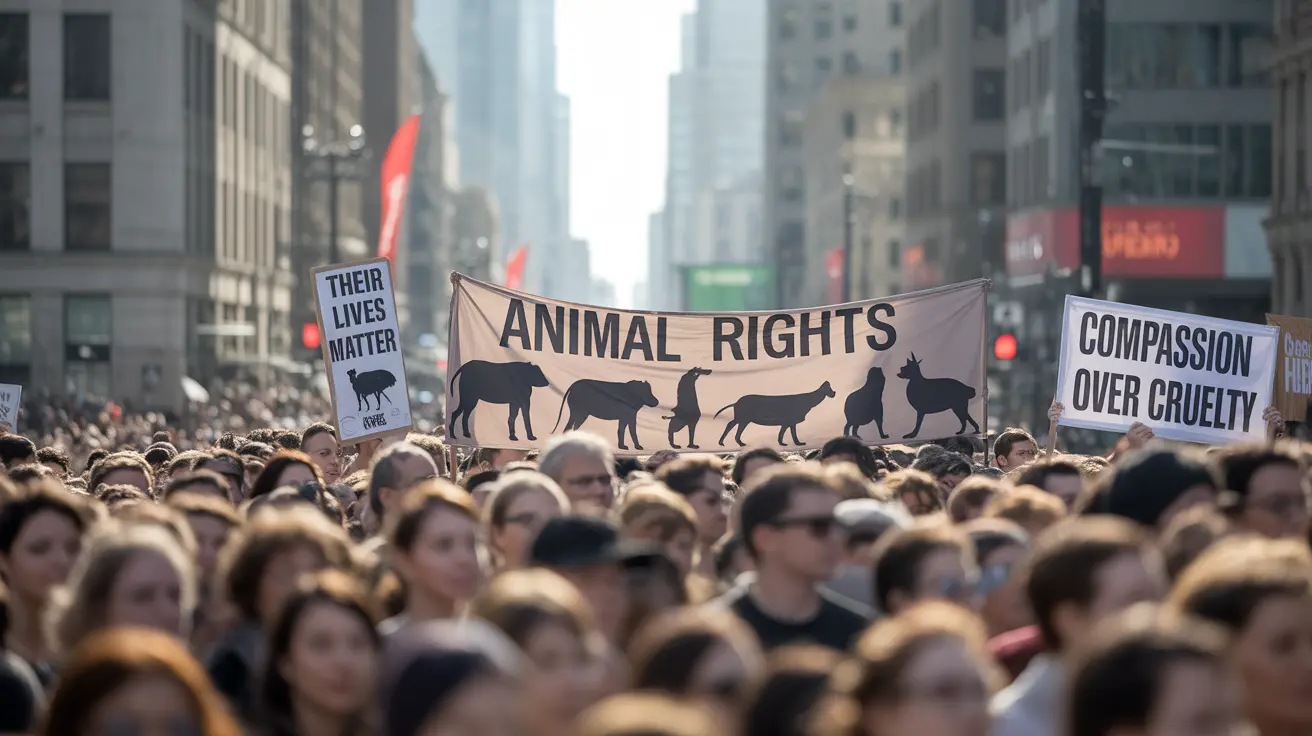The animal rights movement marks a significant milestone this year, celebrating 50 years since the publication of Peter Singer's groundbreaking book "Animal Liberation." This watershed moment in 1975 fundamentally changed how society views and treats animals, introducing crucial concepts that continue to shape our relationship with pets and all creatures today.
The movement's evolution from philosophical discourse to practical action has revolutionized our understanding of animal welfare, particularly influencing how we care for our companion animals. The introduction of the concept of "speciesism" challenged long-held assumptions about animal consciousness and their capacity for suffering, leading to sweeping changes in pet care standards and animal protection laws.
The Foundation of Modern Animal Rights
Peter Singer's "Animal Liberation" sparked a paradigm shift by introducing the revolutionary idea that an animal's ability to suffer, rather than their intelligence, should be the primary consideration in their moral status. This fundamental principle has become the cornerstone of modern animal welfare advocacy and has profoundly influenced how we approach pet care and animal protection.
Understanding Speciesism and Animal Sentience
The recognition of animal sentience has been crucial in reshaping our approach to ethical treatment of animals. Modern science continues to validate what many pet owners have long known intuitively: animals experience complex emotions and deserve consideration beyond their utility to humans.
Evolution of Animal Welfare Laws
The past five decades have witnessed significant progress in animal protection legislation, though challenges remain. While the European Union and United Kingdom have implemented comprehensive animal welfare reforms, the United States continues to work toward stronger federal protections.
Impact on Factory Farming and Animal Testing
- Implementing stricter regulations on factory farming practices
- Advancing bans on certain types of animal testing
- Promoting transparency in animal agriculture
- Encouraging more humane alternatives in research
Veganism and Modern Pet Care
The connection between animal rights advocacy and plant-based diets has influenced how many pet owners approach their own nutrition choices. While pets require species-appropriate diets, the movement has encouraged more thoughtful consideration of pet food sourcing and quality.
Promoting Humane Pet Care Practices
- Enhanced focus on emotional well-being
- More enriching environmental conditions
- Greater emphasis on positive reinforcement training
- Improved veterinary practices
Frequently Asked Questions
What impact did Peter Singer's book Animal Liberation have on the animal rights movement?
Peter Singer's 1975 book Animal Liberation introduced the concept of "speciesism" and argued that the capacity to suffer—not intelligence—grants moral consideration to animals, sparking the modern animal rights movement and inspiring organizations like PETA.
How has the animal rights movement influenced laws and animal welfare policies?
Since Animal Liberation, there have been bans on certain types of animal testing and improvements in welfare standards for farmed animals in the EU, UK, and some U.S. states, though federal reforms in the U.S. remain limited.
What practical changes have resulted from the animal rights movement for everyday pet owners?
The movement has helped shift cultural views, recognizing pets as sentient beings with emotional lives rather than property, contributing to improved animal care standards and increased interest in vegetarian and vegan diets among pet owners and society.
Looking Forward
As we reflect on fifty years of progress in animal rights advocacy, the movement's influence on pet care standards and animal welfare continues to grow. While significant challenges remain, the fundamental shift in how we view and treat animals represents a lasting transformation in human-animal relationships.
The golden anniversary of the animal rights movement reminds us that compassionate care for all creatures remains an evolving journey—one that began with challenging our assumptions and continues through ongoing education and advocacy for better treatment of all animals, including our beloved pets.






